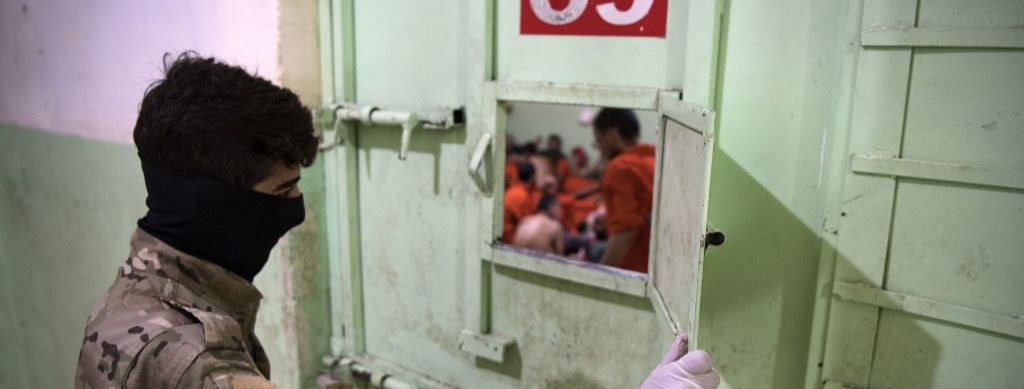In a significant development, the Autonomous Administration of North and East Syria (ANES) has enacted Amnesty Law No. (10) of 2024, offering potential relief to individuals convicted under the region’s broad counter-terrorism laws. This law, welcomed by Amnesty International, could reduce sentences or grant freedom to those who faced unfair trials and torture. However, Amnesty calls for the law’s expansion to include Iraqi detainees and expresses concern for the tens of thousands held without trial. In another critical update, the family of Syrian-American psychotherapist Majd Kamalmaz has filed a $70 million lawsuit against the Syrian government, accusing it of unlawful detention, torture, and killing. This follows previous successful lawsuits against the Assad regime for human rights violations. Finally, Ambassador Robert Wood addressed the UN Security Council, highlighting the lack of progress on Syria’s political front due to regime obstruction. He emphasized the need for genuine political solutions, condemned recent elections, and called for better humanitarian access and international support for displaced Syrians, while stressing ongoing U.S. sanctions aimed at holding the Assad regime accountable.
New law paves way for justice for prisoners convicted in flawed trials in north-east Syria
The A ANES (autonomous authorities) decided to issue Amnesty Law No. (10) of 2024, providing relief for some individuals who were convicted of crimes under the region’s overly broad counter-terrorism laws, or those who surrender themselves within 90 days of the date the amnesty law becomes effective.
In response, Aya Majzoub, Amnesty International’s Deputy Regional Director for the Middle East and North Africa office, said that that the general amnesty law could potentially reduce sentences for Syrians convicted after unfair trials in the People’s Defence Courts, or even offer them freedom. These detainees were often denied legal representation and subjected to torture for forced confessions. Amnesty urges that this law be expanded to include Iraqis prosecuted in the same courts.
Despite this positive step, Amnesty remains concerned about the tens of thousands of detainees, including children, held by autonomous authorities for over five years without charge or trial. They call on the United Nations to work with these authorities and the US-led coalition to urgently screen detainees, identify those who should be prosecuted for serious crimes, and release others, prioritizing vulnerable groups like children and trafficking victims.
Syria government sued over alleged unlawful detention and killing of Syrian-American psychotherapist
The family members of Syrian-American Majd Kamalmaz filed a civil lawsuit against the Syrian government on Monday, seeking damages of at least $70 million from the Assad regime for the unlawful detention, torture and killing of Kamalmaz.
The lawsuit, filed on behalf of the Kamalmaz family by law firm Miller & Chevalier in collaboration with the Syrian Emergency Task Force, was submitted to the US District Court in Washington, DC under the state sponsor of terrorism exception of the Foreign Sovereign Immunities Act. The exception allows individuals to sue foreign governments designated by the US as state sponsors of terrorism for compensatory damages.
Majd Kamalmaz, a psychotherapist and humanitarian worker, was first arrested by Syrian regime forces on February 15, 2017 in Damascus, Syria. Kamalmaz’s family was informed by US officials in May that he died in prison.
This is not the first time such a lawsuit has been filed. In January, Miller & Chevalier secured nearly $50 million in damages from the Syrian government on behalf of Kevin Dawes, a US national who was imprisoned and tortured by the Syrian government for almost four years.
Summary: Remarks at a UN Security Council Briefing on Syria
On July 22, 2024, Ambassador Robert Wood, the U.S. Alternative Representative for Special Political Affairs, delivered remarks at a UN Security Council briefing on the political and humanitarian situations in Syria. Despite efforts by the Special Envoy and his office, there has been no progress on convening the Constitutional Committee or advancing UN Security Council Resolution 2254, due to obstruction by Russia and the Syrian regime.
Ambassador Wood praised the Syrian Negotiation Commission’s engagement with the UN and reiterated that the U.S. will not normalize relations with the Syrian regime or lift sanctions without a genuine political solution. He condemned the recent sham parliamentary elections in Syria and stressed the need for free, fair, and inclusive elections as outlined in Resolution 2254.
He highlighted Syria’s ongoing violence against peaceful protesters, specifically mentioning recent violence in Suwayda. On the humanitarian front, Wood acknowledged the extension of UN humanitarian access through the Bab al-Hawa crossing for six months but criticized the regime’s obstruction of humanitarian efforts.
he Ambassador urged the Syrian regime to cooperate with UN humanitarian assistance efforts and called for the reopening of commercial access to Rukban. He also emphasized the need for international support for the Al-Hol camp and detention centers in northeast Syria, underscoring repatriation and reintegration as long-term solutions.
Wood expressed concern over Iran’s malign activities in Syria and reiterated U.S. sanctions aimed at holding the Assad regime accountable for human rights abuses. He clarified that U.S. sanctions do not target humanitarian aid and mentioned the humanitarian carve-out in UN sanctions regimes led by the U.S.


